"We have a very clear idea of where our next three stores will be, we just need to get the deals done on those sites and find the land.”
CarShop
Turnover: £208.6 million (2014: £195.3m)
Profit before tax: £5m (2014: £2.4m)
Sites: Cardiff, Doncaster, Northampton, Norwich, Swindon
Number of staff: 350
2015 sales volume: 20,418
Three-and-a-half years after he was fast-tracked to the top of the UK’s fourth-biggest car supermarket group, CarShop chief executive Jonathan Dunkley is in no doubt about where he is taking the business, having seen his early drive for investment in digital channels and a re-think of its stocking strategy reap rewards.
CarShop increased unit sales by 12.5% (to 20,418) last year and a 32% fall in cost per sale (from £249 to £179) between 2012 and 2015 helped to realise a 113% increase in profit before tax during 2015 (to £5,003,000). It is targeting PBT of £7.5 million and 25,000 car sales for 2016.
The changes introduced by Dunkley, and his ambitious expansion plans, are central to a growth strategy that he hopes will again double profits for the five-site CarShop business in the next three years.
He said: “To do that, we need to open three new stores, one at the end of this year and one at the end of 2017, with another following nine months to a year later.”
Dunkley said he expects growth of about 16% in volume at the existing sites in the same three-year period.
“When I took over the business, it was losing money (-£2.1m in 2013; -£2.5m in 2012) and we needed to change some strategies quickly, mainly around stock. We didn’t have enough cars on the forecourt, we didn’t have the correct mix of stock and we weren’t doing a great job of pricing it either,” he said.
“The decisions that were being taken were not always taken on the evidence of data, it was a case of ‘that’s what my native wit tells me to do’. But times have changed and that is no longer going to work.
“At the time, I was going to our board and saying that there are areas where I can create efficiencies and cut costs, but I actually want to spend quite a lot more money because I think we can make a lot more money that way. At the time, it was a brave decision by the business to support me.”
From scholar to car salesman
Central to Dunkley’s drive to succeed in his role at CarShop was his desire to live up to the weight of family expectation and not fail after he traded a place studying English at Oxford Brookes University for life on the forecourt in 2004.
“My dad said, ‘I don’t know what you’re thinking – you must succeed or I’ll sack you” Jonathan Dunkley, CarShop
His father, Paul Dunkley, is the former chief executive of franchised dealer group Camden Motors, the business that founded CarShop in 1999. Jonathan Dunkley describes him as a “straightforward man”, who would not have hesitated to fire his son from the business had he not succeeded after walking away from his studies.
“He said, ‘I don’t know what you’re thinking – you must succeed or I’ll sack you’,” Dunkley recalled.
“From my point of view, I was really keen to get out there and prove myself.”
Dunkley has introduced a staff development programme – backed up by a structured skills framework – to ensure CarShop staff get the opportunity to develop and progress through the business, but 12 years ago there was no such scheme.
He acknowledges that he probably got opportunities because of who he was, however, and he then pushed his managers to challenge him and stretch his knowledge as he quickly progressed from sales executive to sales manager and business manager. By the age of 24, he was running CarShop’s Northampton site.
Dunkley said his progression through the business – eventually being made operations and marketing director ahead of his move to chief executive in 2012 – gave him the opportunity to “build relationships at all levels and learn about the little nuances”.
Investing in people and data
A stocking policy that drew on data rather than a feel for the local market was an essential part of Dunkley’s plan.
“What we are developing is a truly omni-channel buying service. We want to optimise customers’ opportunities to deal with us” Jonathan Dunkley, CarShop
Before making wholesale changes, a new team was brought in to support his new strategy.
Among the new additions were CarShop marketing director Leo Nelson, the former head of digital for Arcadia Group, and operations director Kirk O’Callaghan, a former head of operations for Halfords.
Dunkley’s younger brother, James, is commercial director, having worked as a project manager in the construction industry in the United States.
CarShop’s more digital-led approach was key to the new direction of stocking and marketing.
Since 1999, CarShop had relied on leasing companies to acquire stock on a 60-day sale-or-return basis.
Dunkley retained that – CarShop’s agreements allow it to return 10% of vehicles if unsold after 60 days – but renegotiated terms with key partners LeasePlan and Hitachi Capital Vehicle Solutions as he pursued new channels to acquire a more varied supply of vehicles.
CarShop acquires roughly 50% of its stock from its leasing partners, with the remainder coming from a combination of auction, daily rental, manufacturers and part-exchange.
A Sell Us Your Car channel is also in a growth stage, Dunkley having identified that the business achieves its best margins on the 15% of part-exchange vehicles it retails.
CarShop has invested in optimising its Google search prominence and pay-per-click adverts in an effort to compete with the likes of WeBuyAnyCar and WeWantAnyCar. It employs the same strategy with its finance offers.
Dunkley said: “The customers can get a valuation online, but we are working towards being able to complete the whole process online.”
CarShop retails about 25% of the cars acquired via Sell Us Your Car, but Dunkley said: “Most customers who are selling a car are buying a car as well, so that creates CarShop customers.”
CarShop’ stocks an average 2,900 cars across its five sites, with a stock profile of two- to four-year-old vehicles and a maximum of 100,000 miles on the clock.
All stock pricing and purchasing activity is backed by data – the business has added 12 data analysts to the two working when Dunkley took the helm.
A database with specific algorithms for each store monitors information, starting with DVLA transactions and CarShop’s own vehicle sales before adding insight from Auto Trader’s i-Control tool and Cap HPI’s Black Book Live.
Analysts, primarily charged with pinpointing the right stock, assign a quality score to each vehicle, monitoring its success via online traffic generated and re-evaluating each every 15 days.
Dunkley said: “We’re looking to maximise profit per car parking space per day.”
CarShop’s stockturn will settle just above nine for the year as demand settles in Q4, according to Dunkley.
Leading the way
Dunkley said he is a firm believer that independent retailers should be the standard-bearers for the industry.
However, he has also taken on a franchise in the form of MG Motors – retailing about 400 new cars each year – and sees future growth in new car sales.
He said: “Obviously, we will come up against challenges from manufacturers wanting to protect their brand, but we believe we can meet the levels of experience manufacturers expect because in some instances we are setting the standards that should exist in the franchised world. Our priority at the moment is having a really good relationship with MG, but once we’ve got the learning behind us we’ll talk to other manufacturers.”
CarShop is keen to exceed customer expectations.
Automatic numberplate recognition at the entrance to sites identifies customers so that they can receive a personal greeting at reception.
Its stores are equipped with information hubs where customers can search the CarShop website or wider internet.
Currently, 37% of customers pre-book a visit online or via CarShop’s Doncaster-based call centre, where staff deal with enquiries by telephone, email or online live chat.
Car handovers get the “wow factor” of an unveiling – with sheets placed over customers’ purchases before they arrive.
The Doncaster call centre also facilitates 20% of sales via click and collect and a further 5% of buyers who opt to buy remotely. CarShop’s home delivery service uses three Doncaster-based delivery drivers to transport vehicles anywhere in the UK. Buyers get a 14-day returns option.
Dunkley said: “What we are developing is a truly omni-channel buying service. We want to optimise customers’ opportunities to deal with us.”
In 2015, CarShop won Best Dealer Website at the AM Awards. A new site, prioritising the mobile and tablet devices on which 70% of online enquiries are made, was launched this month.
Allowing easier updates and more effective mapping of customer activity, the new site is part of an online strategy that accounts for about 65% of CarShop’s marketing spend.
A breadth of service
The decision to merge Camden Motors’ Spirit business into CarShop in 2012 was part of a drive towards offering a broader spectrum of services.
 Based at Leighton Buzzard, Spirit was focused on vehicle preparation for the leasing industry. However, using the facility as a central hub for CarShop’s pre-delivery inspection (PDI) operation meant workshops at each site could focus on delivering an aftersales service. Aftersales accounts for 10% of the business’ turnover, with 20% penetration achieved on service plans and 50% on warranties.
Based at Leighton Buzzard, Spirit was focused on vehicle preparation for the leasing industry. However, using the facility as a central hub for CarShop’s pre-delivery inspection (PDI) operation meant workshops at each site could focus on delivering an aftersales service. Aftersales accounts for 10% of the business’ turnover, with 20% penetration achieved on service plans and 50% on warranties.
A preparation, repair and logistics solution for rental companies and CarShop’s leasing partners continues at the 15-acre Spirit site, which processes about 45,000 vehicles a year for CarShop, Nissan, Europcar and Countrywide estate agents.
CarShop also invested £250,000 in new imaging studios at the Spirit site 12 months ago, equipping it with the tools to market its retail cars online within hours of a completed PDI.
‘We’re not afraid to give people the skills’
Progression through the CarShop ranks is rarely as rapid as Dunkley’s own journey, but his path to the top has coloured his thinking when it comes to his team and their own careers.
The business has its own talent acquisition manager and progression from the role of ‘sales colleague’ to that of manager, senior manager, head of department and executive is mapped out with training that supports a strict skills framework.
Staff are assessed twice a year as a minimum requirement and an Engage Talent programme takes in potential future leaders every six months.
Candidates receive their own mentor and more intensive training (both in-house and from third-party providers) to equip them with the skills for management.
Dunkley said: “We’re not afraid to give people the skills. It’s a bigger risk to our business if we don’t train them.”
CarShop still rewards its staff on a performance basis, with commissions and wages balanced 50:50, but Dunkley said that balance had been closer to 70:30 when he took up the post.
While sales staff still follow a commission-based wage structure, managers are rewarded on customer feedback – based on insight gained from the InMoment customer service platform – with huge stock being placed in ratings on the likes of Google Review, JudgeService and Feefo.
Dunkley is keen to engage his staff and wants them to see CarShop as somewhere they are proud to work.
He delivers a monthly video update to his teams and has overseen the introduction of a survey, monthly focus groups and an open-door “lunch with the boss” event at each site every quarter.
The business’s Engage Benefits online portal also gives access to perks such as cheap gym memberships, a car ownership scheme, cycle to work scheme and a rewards scheme called Engage Rewards. This gives staff the ability to recognise colleagues and managers to acknowledge successes with “Engage Points”, which can be used to buy items from the portal.
CarShop’s annual staff survey found 81% are “highly engaged”. The external benchmark is 73% (from companies such as Harvey Nichols), according to Dunkley.
He said: “Are our staff upbeat and focused on doing a great job for the customer? If they are, the profitability follows.”
In terms of Dunkley’s own career, his aim is clear: to drive CarShop on to further success.
New stores, new franchised partners and maybe even a new retail model are not far away, he revealed: “The big stores will eventually transition in part into distribution centres. I envision myself at a CarShop centre in the Bull Ring in Birmingham, I see a car I want, and I reserve it and have it delivered directly to my home or workplace.”

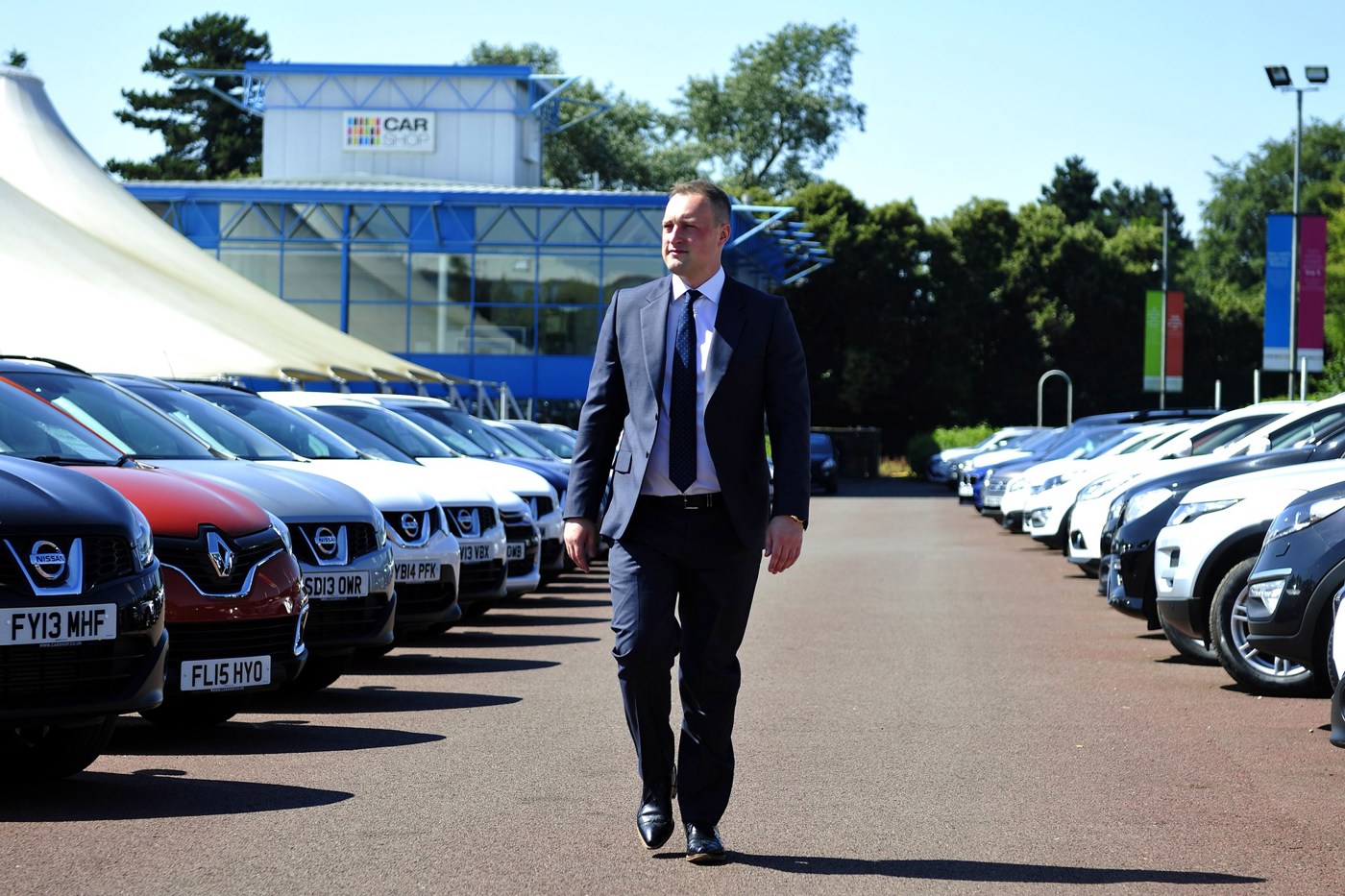


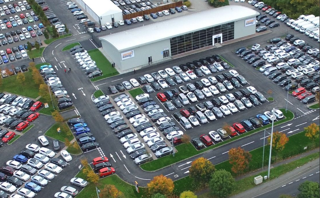
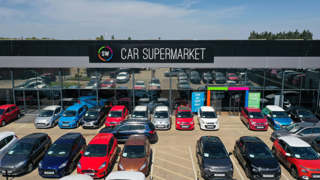
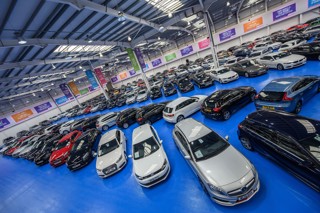
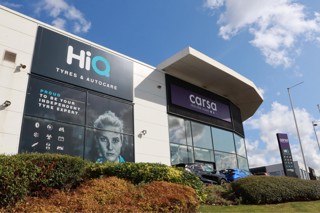











Login to comment
Comments
No comments have been made yet.